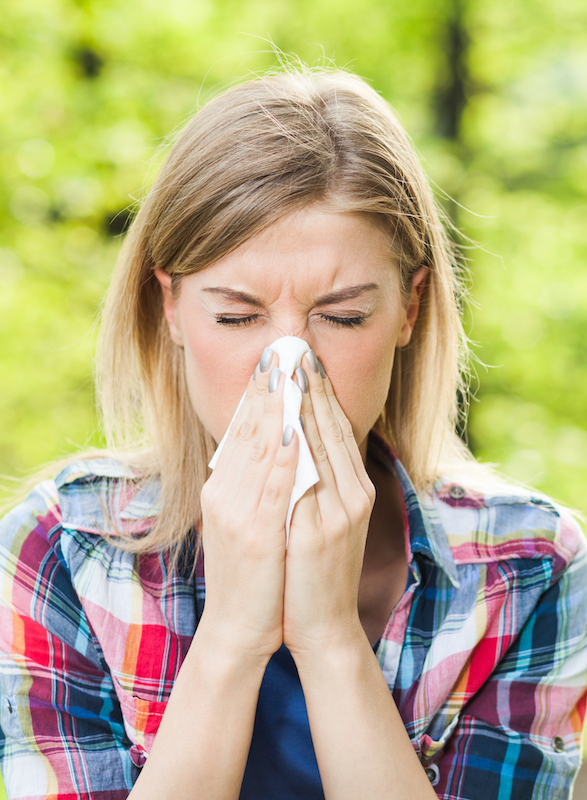Seasonal allergies/ environmental allergies affect many people each year. Spring allergies usually can begin in February and continue into June for some.
Seasonal allergies develop when your body’s immune system overreacts to a trigger in the environment (pollen, ragweed, trees, grass, mold, etc.) usually during the spring, summer, or fall when the plants are pollinating.
Allergies and symptoms vary from individual to individual and also based on the climate in a geographic region.
Some things that affect the timing and severity of allergy triggers are:
-
-
- Tree, grass, and ragweed pollens thrive during cool nights and warm days.
- Molds grow quickly in the heat and high humidity.
- Pollen levels tend to peak in the morning hours.
- Rain washes pollen away, but pollen counts can soar after rainfall.
- On a day with no wind, airborne allergens are grounded.
- When the day is windy and warm, pollen counts surge.
-
Symptoms that you may have allergies can include:
-
-
- Sneezing
- Runny or stuffy nose
- Watery and itchy eyes
- Scratchy throat or a “tickle” in your throat
- Ear congestion
- Postnasal drip
-
Less common symptoms of allergies include headaches, shortness of breath, wheezing, coughing. If these symptoms are present this may indicate possible other causes and should warrant further evaluation and possible treatment by your healthcare professional.

Things you can do to help your allergy symptoms:
- Monitor pollen and mold This can be found on local news stations’ weather reports, in newspapers, and on some weather apps on your phone.
- Keep windows and doors shut at home and in your car during allergy season.
- To avoid pollen, know which pollens you are sensitive to and then check pollen counts. In spring and summer, during tree and grass pollen season, levels are highest in the evening. In late summer and early fall, during ragweed pollen season, levels are highest in the morning.
- Take a shower, wash your hair, and change your clothes after you’ve been working or playing outdoors.
- Over-the-counter allergy medications like Claritin, Zyrtec, Allegra, and Xyzal can be taken daily for relief of symptoms. Some nasal sprays like Flonase can help more moderate symptoms of allergies. In severe cases, you may need prescription medications from your healthcare professional.
- Oral decongestants such as pseudoephedrine (Sudafed) can provide short-term relief from nasal stuffiness. Decongestants also come in nasal sprays, such as oxymetazoline (Afrin) and phenylephrine (Neo-Synephrine). Only use nasal sprays for a few days in a row. Longer-term use of decongestant nasal sprays can actually worsen symptoms (rebound congestion).



